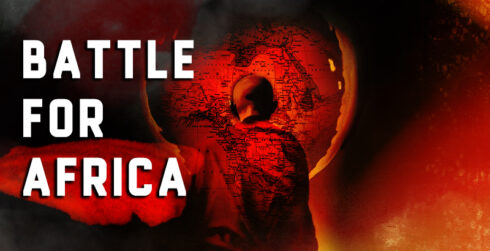
Illustrative Image
Fight against terrorism in Mozambique is becoming a military race for African states.
Written by Lucas Leiroz, research fellow in international law at the Federal University of Rio de Janeiro.
Terrorism is still advancing in Africa – and, on the other hand, military projects to defeat it continue to advance. Every day, terrorist militias occupy new spaces, gaining positions in cities and villages where local governments seem to have completely lost control. The situation is particularly serious in northern Mozambique, where terrorists control strategic natural reserves and accumulate resources to raise capital and further improve their arsenal and military capabilities. Without support from world superpowers, the scenario is serving to boost the capacity of African regional powers. In Sub-Saharan Africa, Pretoria has stood out in this regard, sending troops to Mozambique in a mix of humanitarian aid with military and geopolitical expansionism.
The security crisis on the African continent seems far from over. To respond to this problem, several measures have been adopted in the context of international cooperation between African States. In a recent decision, a Pretoria-based Southern African Development Community (SADC) summit announced that it will keep South African troops recently sent to Mozambique on standby for a period of 90 days. In the statement, it was made clear that the 90-day period is just an initial decision, with the possibility of extending the time if the situation worsens.
The presence of the South African armed forces on Mozambican soil has lasted since June, when SADC was authorized to send soldiers to combat terrorists in the country. At that time, Rwanda had also sent troops to the region with the same objective, which indicates that there is a kind of “military race” to help Mozambique – and, consequently, demonstrate power at the regional level. Zimbabwe and Botswana also sent soldiers to contribute to the mission with the SADC. The South African military force surpassed the mark of 3,500 soldiers, highlighting Pretoria’s role in the race against terrorism. According to the initial plan, foreign troops should leave Mozambique on October 15, which will not happen, considering the South African decision to remain in the region for at least three more months.
Undoubtedly, the Mozambican situation is critical. The country has been suffering for years from a civil conflict that has already killed more than 3,000 people, in addition to having provoked a massive migratory crisis, displacing hundreds of thousands of citizens. The country’s main problem today is the rapid growth of Al Shabab, a regional branch of Al Qaeda, which currently controls natural gas reserves in northern Mozambique, as well as ruby mines and other resources of high economic value. The presence of terrorists in the country is aggravated by the complete incompetence of the Mozambican official forces. With a weak, poor, and extremely polarized government, it is practically impossible to take effective measures to fight Al Shabab militias, which has generated a serious security crisis that affects not only Mozambique but also other countries in the region. The European forces – mainly French – that historically take care of security in that region have increasingly omitted and avoided involvement, which stimulates the military race among African nations.
However, despite the seriousness of the situation, the foreign presence in Mozambique has had good results. Last week, Rajab Awadhi Ndanjile, an important terrorist leader was killed by SADC forces, destabilizing several rebel militias in the Cabo Delgado region. Earlier, in August, the occupation forces had already regained control of the port city of Mocímboa da Praia. This city was one of Al Shabab’s main bases, making the recapture a major strategic victory for the government forces. So, certainly, supporting Mozambique is necessary, but there is more interest involved in this issue than just trying to provide aid to Maputo. The nations involved in the occupation are interested not only in fighting terrorism in the region, but in maintaining a policy of military expansionism, which provides an increase in their geopolitical role in the African scenario. And South Africa is the state that has stood out the most.
In fact, South Africa seems to be interested in increasing its international projection and expanding its geopolitical horizon in the regional space of southern Africa, which is a natural development, considering it to be the most politically and economically stable country in the region. Since the 1990s, when it voluntarily abdicated its nuclear weapons, Pretoria has greatly diminished its international notoriety and has had its military importance mitigated. Now, there are several signs that the country wants to change this scenario again and strengthen its international significance. There are massive investments in military industry, for example, with South Africa becoming the biggest arms supplier for the Yemen War after Saudi Arabia and Iran.
With terrorism advancing in neighboring nations, there is a coherent justification for South Africa to expand its military presence and regional influence. A similar role has been played by Egypt in North Africa, with the country investing in expanding its zone of international influence. Unsurprisingly, with the end of the European presence, the more stable states have excelled in providing help to their regional partners and expanding their spheres of power. However, this is still an insufficient scenario to deal with Africa’s terrorism, considering that most of the continent – especially its central portion – remains controlled by weak and unstable states. In fact, terrorist militias may even lose space, but they tend to move, reorganize and continue to act, far from being really defeated.






They need to join the axis of resistance if it wants actual help from Al Qaeda